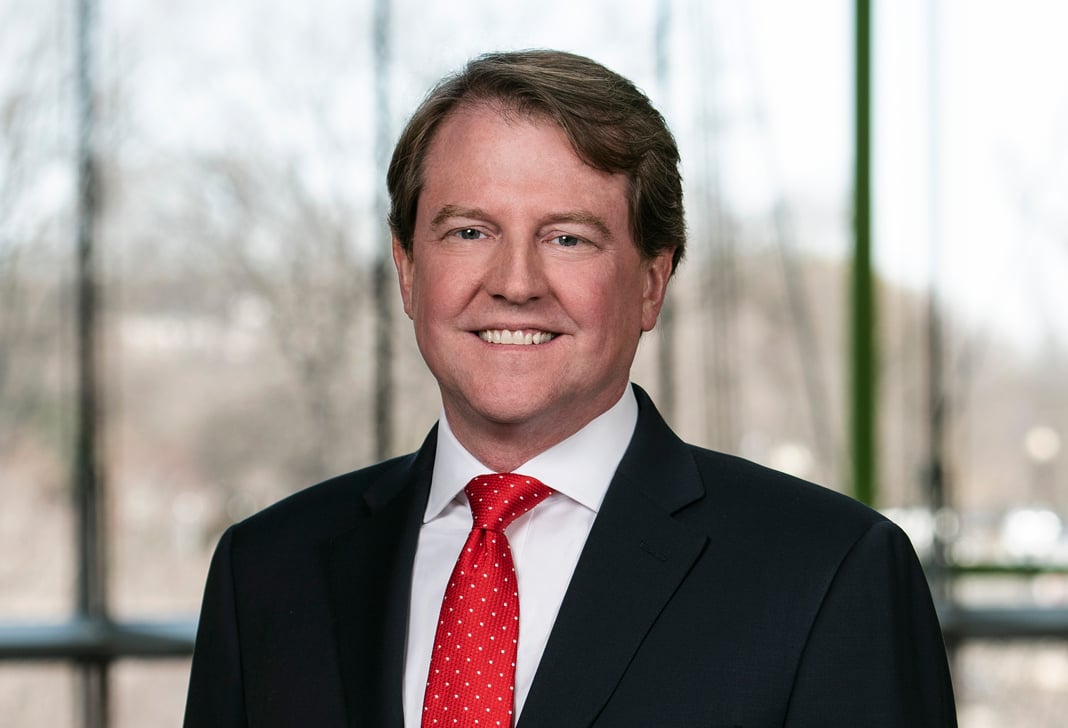
New Phase in U.S.-China Relations Poses Challenge for the Private Sector (Newsweek)
The COVID-19 outbreak could have been a prompt to ease tensions between the United States and China, but instead opinion between the two countries has hardened, and a crisis over Hong Kong’s future has emerged as a new point of dispute. In an article published in Newsweek, Jones Day partners Donald F. McGahn II and Schuyler J. Schouten outline five aspects of a complex new U.S.-China reality.
A pandemic is rarely a unifying experience. For Washington and Beijing, the COVID-19 outbreak could have been a chance to unite in a common cause and moderate recent tensions. Instead, opinion in both capitals has hardened, and a crisis over Hong Kong's future has emerged as a new point of dispute.
For the private sector and the research community, these events mark a departure from the assumptions and regulatory regimes of a generation. Scores of corporate strategies, industry supply chains and R&D partnerships have relied on Western and Asian governments' embrace of a familiar set of principles: closer connections between China and "developed" economies would bring benefits for all; the private sector was encouraged to build "win-win" patterns of cooperation; and Hong Kong would serve as a meeting point and a gateway, with institutions credited as independent and trustworthy by all sides.
The post-outbreak rules of the road are still evolving, as President Donald Trump's statements on his China trade negotiations and quest for "an open and constructive relationship with China"—by turns hopeful and combative—demonstrate. But some aspects of a more fraught and complex new reality are already clear:
1. Elite consensus has shifted, and will not return to its pre-COVID state. Two years ago, many assumed (or hoped) that the Trump administration's trade policies and China's nationalist approach to economic development might be a temporary departure from global norms. But it is the norms that are changing. China has doubled down on its approach and offers it as a global model. In the United States, key portions of the establishment embrace the substance of the president's trade policies—"pushing back" on China, re-shoring manufacturing and imposing security-oriented travel restrictions—while faulting him primarily on the execution. Leaders of institutions need to prepare for a world of frequently shifting and contradictory restrictions imposed by multiple governments, each regulating trade and travel in the name of national security with minimal advance notice.
2. Businesses are caught in the middle. For a generation, U.S.-China private sector ties flourished in a relatively apolitical realm. Now, they are on the frontlines of international tensions, with tariffs, sanctions, securities listing restrictions, foreign investment reviews, visa limitations, import and export restrictions, boycotts and weaponized social media controversies emerging as preferred policy tools. Institutions with international footprints will increasingly face calls to "pick a side" and demonstrate compliance with one government or the other's standards. In Hong Kong, many of these trends are coming to a head.
3. Calls to "decouple" economies may prove unrealistic, but efforts to re-shore supply chains will change industries in fundamental ways. The experience of PPE shortages has altered the policy debate in the United States and Europe, lending support to a view that China has long held: domestic manufacturing matters, as well as some other products and technologies, are too important to be sourced entirely from abroad. Businesses, particularly those dealing in food, medicine, software and technology, need to decide where they and their supply relationships fit into this trend—even as they pursue benefits from multiple markets. Whether they are seeking subsidies to move factories, segmenting their R&D and supply chains into branches for different national or regional markets, or petitioning for approval to conduct "business as usual," few companies can afford to be passive.
4. Heightened regulations and investigations are the new normal. Industry and academia can expect closer scrutiny of their research partnerships, supply relationships and security practices—even in seemingly "apolitical" and low-tech sectors. The "China Initiative" (DOJ's campaign to use civil and criminal enforcement measures to counter perceived Chinese national security threats), an expanded Committee on Foreign Investment in the United States process and Department of Energy and Department of Education directives on foreign research programs all signal a long-term investment of government resources that are not limited to one sector or political party. In each of these arenas, the government asserts the right to draw on privileged or classified information not disclosed in full to the investigated party.
5. The private sector should be prepared to comply with new and shifting restrictions—but also to distinguish law from politics, and defend compliance on its own terms. As governments call on the private sector to support national priorities, the difference between binding rules and political exhortation is fundamental. Just as governments are (or should be) driven by national interest, companies are driven by fiduciary duty and non-profit organizations by their charter mission. They generally do not lend a hand with foreign policy unless there is a legal or financial incentive to do so. Research, investment or sales practices that are lawful but have fallen out of political favor are still lawful. Regulated parties should be prepared to explain their compliance with applicable rules, and to insist that regulators recognize the distinction between law and political pressure.
This new phase on the international stage will present novel challenges for both governments and the private sector. It is unfolding during a once-in-a-century public health crisis, lending a tragic air to an already tense and complicated array of questions. Leaders should prepare for a decade of consequential changes, in which law will be one of governments' most powerful swords—and the private sector's most reliable shields.
Reproduced with permission. Published June 25, 2020. © 2020 Newsweek. Further duplication without permission is prohibited. All rights reserved.



